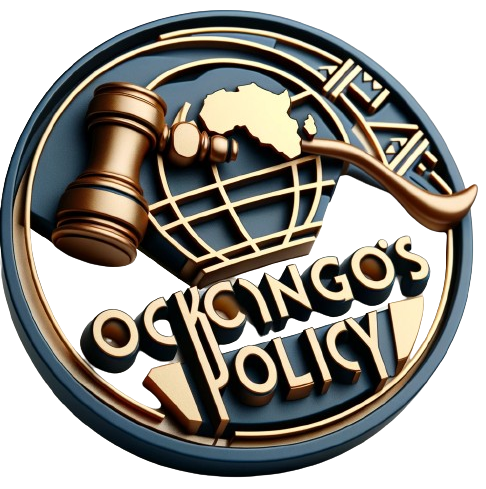Exploring Governance Structures in Africa: Challenges and Opportunities
Economic stability weaves a complex tapestry that profoundly influences governance frameworks across Africa. Picture this: robust economies often nurture political systems marked by transparency and accountability, fostering a sense of trust among the populace. In stark contrast, fragile economies unravel into a quagmire of weakened governance mechanisms—an unsettling reality where economic inequality magnifies the hurdles in effective leadership. This chasm between wealth and poverty stirs social unrest and sows seeds of distrust within communities. When financial resources dwindle, governments frequently veer towards short-term solutions, sidelining sustainable development in favor of immediate gains—a perilous choice that jeopardizes long-range strategic vision.
Then there’s the intricate dance with foreign direct investment (FDI), an essential player in shaping governance narratives throughout various African nations. A surge of capital can indeed be transformative—think enhanced infrastructure and improved public services flourishing like wildflowers after rain! Yet, dependency on FDI introduces its own set of challenges; external pressures may skew local priorities off course, overshadowing homegrown initiatives. Crafting economic policies that skillfully harness internal resources while championing sustainable practices becomes paramount for creating fertile ground where effective governance can thrive. Thus arises an urgent call to action: we need policies not only designed to attract investment but also to bolster accountable governance structures so they stand firm against the winds of change!
Resource Management and Economic Policies
Navigating the labyrinth of resource management is absolutely pivotal when it comes to sculpting economic policies across Africa. This vibrant continent, teeming with an abundance of natural treasures—minerals, oil reserves, and agricultural bounty—offers a dual-edged sword: a treasure trove of opportunities intertwined with thorny challenges. The specter of mismanagement looms large; it can spiral into economic chaos, spark social upheaval, and wreak havoc on the environment. Yet, on the flip side lies the promise of sustainable practices that not only boost productivity but also foster fair economic growth.
Policymakers stand at a crossroads where transparency and accountability must take center stage if they are to cultivate investor trust and champion responsible resource utilization. Economic strategies that harmonize with effective resource management can breathe new life into local economies while lifting marginalized communities out of obscurity. By channeling investments toward infrastructure development and human capital enhancement, nations position themselves to tap into their resources for sustained progress.
But wait—there’s more! Diversifying beyond mere extraction industries is crucial in this intricate dance; such diversification cushions against the unpredictable ebbs and flows of global markets while igniting innovation like kindling to flame. A synergy among governments, private enterprises, and civil societies has the potential to fortify these policies even further—ensuring they resonate deeply with the multifaceted socio-economic realities faced by diverse populations across this vast landmass.
| Resource Type | Opportunities | Challenges |
|---|---|---|
| Minerals | Job creation and export revenue | Environmental degradation and conflict |
| Oil Reserves | Increased foreign investment and energy security | Dependency on oil prices and economic volatility |
| Agricultural Products | Food security and local employment | Access to markets and climate change effects |
| Renewable Resources | Sustainable energy solutions and innovation | Capital investment and technology transfer |
Technological Innovations in Governance
The landscape of governance across Africa is undergoing a remarkable metamorphosis, fueled by the whirlwind of digital technologies. Governments are diving headfirst into e-governance platforms, aiming to unravel the knots of opacity that have long plagued their operations. With this digital toolkit in hand, they’re not just slashing through corruption but also stepping up service delivery like never before. Imagine citizens effortlessly accessing public services through online portals and slick mobile apps—efficiency redefined!
But it doesn’t stop there; this seismic shift paves the way for an explosion of data collection and analysis, ushering in a new era where informed decision-making reigns supreme and policy implementation takes on a sharper edge.
And wait—there’s more! Enter blockchain technology: a beacon being explored for its potential to bolster security and instill trust in public transactions. By weaving these innovative threads into the fabric of governance, we inch closer to crafting a participatory model where citizens can engage directly with their governing bodies. This dynamic interaction sparks accountability while igniting collaboration between state actors and civil society—a dance that could redefine civic engagement.
As nations boldly stride forward into this digital frontier, the horizon glimmers with promise—the prospect of enhanced governance structures looms large. It’s an exhilarating journey toward creating political environments that are not only responsive but also inclusive, setting the stage for transformative change across the continent!
Leveraging Digital Tools for Better Governance
The rise of digital tools in governance is shaking up public administration all over Africa. Governments are diving headfirst into technology to ramp up transparency, streamline those often-clunky processes, and boost service delivery like never before. Digital platforms are now the lifelines for real-time chatter between citizens and officials—talk about accountability! Initiatives such as e-governance and online service portals have morphed into must-haves for institutions eager to operate smoothly while responding nimbly to the needs of their populations.
But wait, there’s more! Data analytics has stepped onto the scene with a bang, wielding significant influence over decision-making and policy creation. By harnessing the power of big data, governments can gain deeper insights into the socio-economic hurdles confronting their communities. This savvy approach allows them to prioritize resources wisely and tackle issues head-on with greater effectiveness. On top of that, mobile technology is weaving its magic by fostering inclusivity; it opens doors for marginalized groups to engage with government services while amplifying their voices. The possibilities these digital tools offer keep expanding at an exhilarating pace, holding out promises for enhanced governance alongside enriched experiences for citizens across the continent.
Civil Society and Citizen Engagement
Effective governance, oh what a tangled web it weaves! It hinges on the vibrant pulse of civil society and the spirited involvement of citizens in those crucial decision-making arenas. When communities come together, they unveil the intricate tapestry of local needs and priorities, creating a fertile ground for accountability among public officials who may otherwise sail through unchallenged. Civil society organizations step into this dance as vital intermediaries—amplifying citizen voices to policymakers while fiercely championing the rights of those often relegated to the shadows.
This dynamic interplay doesn’t just enhance transparency; it can ignite a more equitable distribution of resources—an elixir for democratic resilience that we so dearly crave.
And let’s not overlook how modern communication technologies are shaking things up! Social media platforms and mobile apps have burst onto the scene like fireworks on Independence Day, providing fresh avenues for public discourse where individuals can voice their thoughts and rally around urgent issues. This digital revolution has breathed new life into civic engagement, empowering folks from all walks to dive headfirst into governance. They’re chronicling collective action through advocacy campaigns, petitions that demand attention, and organized movements that reverberate across communities. These platforms serve as bridges over turbulent waters between government entities and everyday people—fostering policies that resonate with genuine aspirations rather than stifled whispers in echoing halls.
Promoting Active Participation in Governance
The active engagement of citizens in governance stands as a cornerstone for nurturing accountability and transparency across African nations. When communities dive into the decision-making whirlpool, policies begin to mirror the true needs and aspirations of the people. This participation takes myriad forms—think local forums buzzing with chatter, town hall meetings alive with debate, or digital platforms that fling open the gates for broader input. Each avenue serves as a vital channel for voices to echo concerns and preferences, ultimately fortifying the bedrock of democratic ideals.
Moreover, educational initiatives that ignite civic knowledge are pivotal in amplifying this participation. As awareness regarding rights and responsibilities swells, individuals find themselves more inclined to plunge into governance activities. Often at the helm of these movements are civil society organizations, tirelessly mobilizing citizens while crafting welcoming spaces for dialogue. With each passing moment of increased information and activity among the populace, governance structures can morph into entities that are not only inclusive but also truly representative of their constituents’ diverse tapestry.
Regional Cooperation and Governance
Regional cooperation stands as a cornerstone in the intricate tapestry of governance across African nations. It’s not just about countries working side by side; it’s an elaborate dance of shared wisdom and resources, deftly navigating common storms like security threats, economic turbulence, and health emergencies. Think tanks like the African Union and various regional economic communities emerge as vibrant arenas for dialogue, where policies take shape amidst animated discussions. They champion collective strategies that tackle pressing regional dilemmas while fortifying the institutional frameworks of their member states.
But there’s more—these regional initiatives breathe life into a sense of unity and shared ambition that is crucial when confronting transnational challenges head-on. As nations deepen their collaborative efforts in governance, they tap into an impressive array of strengths, crafting political structures that are not only robust but also adaptable to shifting landscapes. By placing mutual interests at the forefront and embracing cooperative actions wholeheartedly, countries embark on a journey towards realizing sustainable development goals while fostering stability across the region—a holistic response to the multifaceted puzzles posed by complex governance issues.
The Role of Regional Organizations
In the intricate tapestry of Africa’s governance landscape, regional organizations emerge as pivotal architects, weaving together frameworks that define power and responsibility on the continent. Consider the African Union (AU) and its counterparts like the Economic Community of West African States (ECOWAS)—these entities are not merely bureaucratic bodies; they stand as bastions for democracy, human rights, and economic synergy. Their influence extends beyond mere guidelines—they cultivate political stability while crafting fertile grounds for dialogue among nations. Herein lies a dynamic exchange of ideas—best practices unfurling across borders, igniting a collective commitment to uphold governance principles.
But their roles stretch further into turbulent waters; these organizations often don caps of mediators in times of conflict and crisis—a testament to their sway over peacekeeping efforts. By championing collaboration across sectors such as trade, health care, and education, regional bodies forge interconnected governance networks that beckon countries toward cooperative endeavors. It’s an empowering dance where local actors take center stage in policy-making processes—it’s about incentivizing adherence to those all-important norms governing behavior.
This layered strategy isn’t just a theory; it thrives through action! Each step taken by these organizations fortifies resilient structures capable of withstanding challenges—ultimately nurturing accountability within Africa’s diverse governance systems. The result? A complex yet coherent system striving towards enhanced stability amid a backdrop rich with potential.
Future Directions for Governance in Africa
As African nations grapple with the intricate maze of development, a growing awareness dawns on them: adaptive governance structures are not just beneficial—they’re essential. The whirlwind of rapidly shifting socio-economic landscapes demands flexibility and responsiveness. By championing decentralization, local governance capacities can be significantly bolstered, allowing for more nuanced approaches that cater to the unique needs of communities.
But that’s only part of the equation! Enter technology—a game changer in governance processes. Digital platforms emerge as powerful tools, capable of fostering transparent citizen participation while simultaneously streamlining service delivery mechanisms like never before.
Looking ahead, strategies rooted in sustainability and inclusiveness aren’t merely buzzwords; they’re foundational pillars for Africa’s future governance landscape. Pinpointing and executing policies that advance social equity alongside environmental stewardship will prove crucial—not just for tackling entrenched systemic challenges but also for seizing emerging opportunities on the horizon.
Engaging a mosaic of stakeholders—think civil society groups dancing hand-in-hand with private sector players—is vital to cultivate an ecosystem ripe for collaborative governance. Only through sweeping reforms prioritizing accountability, resilience, and active citizen engagement can sustainable development truly take root and flourish across the continent!
Strategies for Sustainable Development and Reform
Sustainable development in Africa—an intricate tapestry woven with threads of socio-economic and environmental strands—demands a nuanced, multifaceted approach. It’s not just about numbers or policies; it’s about people. Policymakers find themselves at a crossroads, where the imperative for inclusive economic growth must take center stage, ensuring that even the most marginalized communities feel the warmth of opportunity. A robust social protection system becomes essential—a safety net to cradle vulnerable populations while simultaneously nurturing their resilience against the unpredictable tides of economic upheaval.
But wait! The narrative doesn’t end there. Investing in renewable energy sources could be a game-changer, propelling us toward an economically sustainable horizon while slashing our reliance on fossil fuels and curbing environmental degradation’s relentless march.
Ah, reform initiatives! They should pivot towards enhancing governance structures—think accountability and transparency as twin pillars holding up this ambitious edifice. Strengthening institutional capacity isn’t just beneficial; it’s vital for effective policy implementation and meticulous monitoring of development programs that can otherwise slip through our fingers like sand.
Now picture public-private partnerships blossoming—they’re not mere collaborations but catalysts for innovation and efficiency! These alliances unlock resources crucial for impactful development projects. And let’s not forget civil society organizations—they’re like community sentinels, ready to engage deeply in the policymaking dance, ensuring public participation flourishes so that reforms resonate with the very essence of those they are designed to uplift. It’s a symphony awaiting its conductor—a harmonious blend where every voice matters in shaping a brighter future.
- Foster inclusive economic growth that prioritizes marginalized communities.
- Establish a robust social protection system to support vulnerable populations.
- Invest in renewable energy sources to promote sustainable economic development.
- Enhance governance structures focused on accountability and transparency.
- Strengthen institutional capacity for effective policy implementation and monitoring.
- Encourage public-private partnerships to drive innovation and resource mobilization.
- Engage civil society organizations to ensure active public participation in policymaking.
Conclusion
Governance in Africa is a labyrinthine tapestry woven from an array of challenges and opportunities, each thread steeped in historical legacies, economic realities, and socio-political dynamics. The machinery of governance often stutters under the weight of corruption, crumbling infrastructure, and the glaring scarcity of resources. Yet—paradoxically—these very hurdles can ignite sparks of reform and innovation! By seizing technological breakthroughs and galvanizing citizen participation, African nations stand at a crossroads where they can forge pathways toward governance that is not only inclusive but also marked by transparency.
As countries across this diverse continent chart their individual governance journeys, the importance of regional collaboration cannot be overstated—it becomes paramount in tackling shared dilemmas. Regional organizations are uniquely equipped to act as catalysts for dialogue and cooperation among member states; they create fertile ground for exchanging best practices and pooling knowledge. The trajectory of governance in Africa will ultimately depend on its capacity to adapt amidst shifting landscapes while harnessing both local ingenuity and regional synergies—all aimed at crafting sustainable development strategies that resonate deeply with effective reforms.







